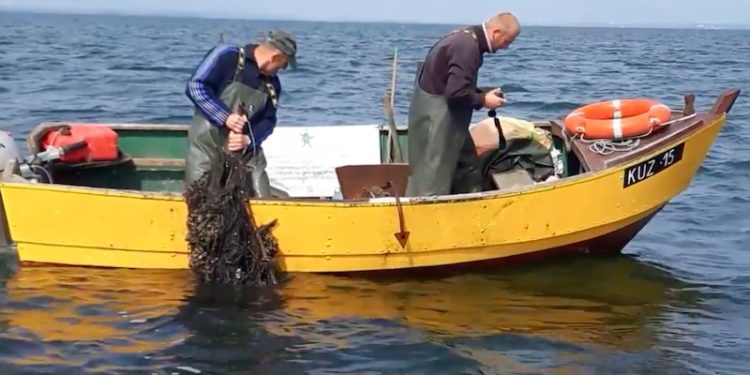There is currently a high awareness of lost fishing gears and their impact on the marine environment, and there are increasingly initiatives to tackle the problem. In Poland coastal fishermen have mobilised to retrieve lost gear for their fishing grounds.
The Clean Baltic initiative is in progress along the Polish coast, including in lagoons, and more than five hundred inshore fishermen have been involved.
Three LIFE Polish Member Organisations got involved in this large-scale project which has been developed thanks to European Maritime and Fisheries Fund cash made available to Poland as part of the Fisheries and the Sea 2014-2020 Operational Programme.
‘We are glad to see that EU subsidies have been used for a universally positive purpose – to improve the state of the marine environment where Polish small-scale fishers operate, while also benefitting other sea users,’ LIFE spokesman Marcin Ruciński said.
The fishermen retrieved a total of just under 147 tonnes of waste. Most retrieved fishing gears were gill nets, but trawls, trap nets, lines and pots were also recovered. The retrieved nets contained fish and other marine organisms, such as birds and mussels and even one dead grey seal. The project was not confined to fishing gears only and the project’s participants also took out many other objects, such as buoys, styrofoam, boxes, lines, tyres, metal debris, as well as smaller waste such as gloves and plastic bags.
‘LIFE is proud to be part of the project, and we take the opportunity to thank all those involved – the fishers and their organisations, the MARE foundation and administration bodies,’ Marcin Ruciński said.
‘Most importantly, we are pleased to witness the strong involvement of the fishers in the project activities, and their feeling of co-responsibility for the state of marine environment, including fish stocks, on which their livelihoods depend.









